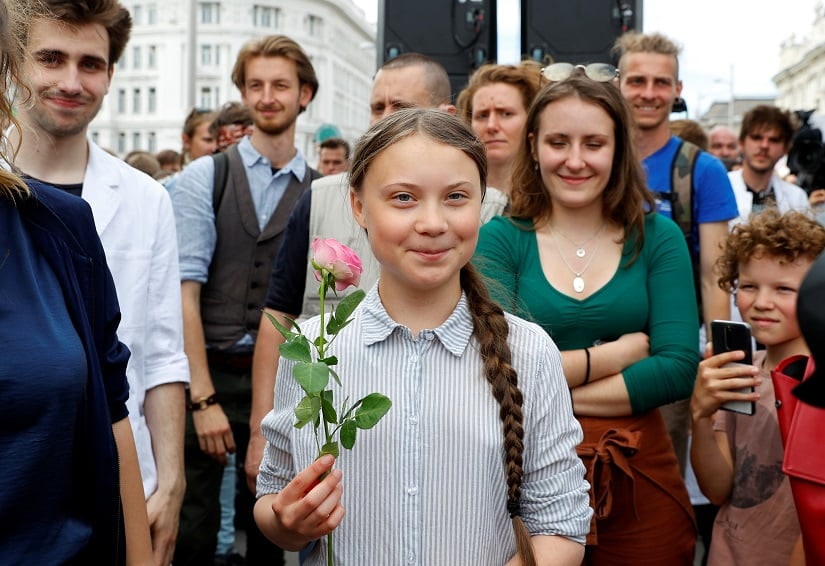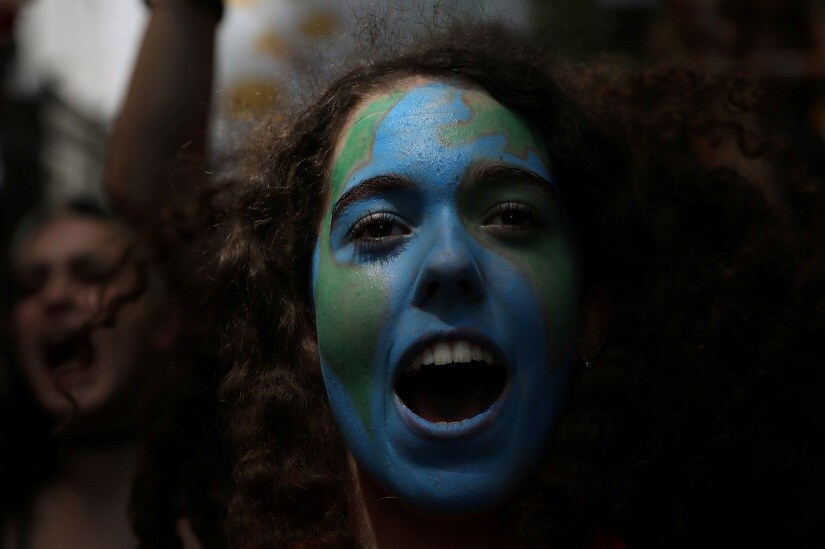Dear Greta, You’re 16 — an age where one is often almost entirely self-absorbed with learning, romance, high school politics. You, however, are concerned about the fate of the world — because those of us who were 16, decades ago, were and are not. [caption id=“attachment_6743701” align=“alignnone” width=“825”]
 Greta Thunberg. REUTERS[/caption] I heard your speech on how if climate change were indeed a crisis, the papers and the news channels would carry nothing but stories on the climate crisis. Instead, as I flip through the newspapers and my news sites one morning in India, possibly the most vulnerable country to climate change, this is what I see: Elections and cabinet postings. There is a small sliver on
below-normal monsoon rainfall in the Northwest and Northeast of the country — there is no mention that climate change is projected to change rainfall patterns across the country — with the
Northwest progressively becoming drier. There is another small sliver on temperatures edging close to 50C — where brief exposures outside will cause the body to start shutting down — but again, no mention of a climate crisis which will make
such heat waves far more common and widespread in the future . What worries me even more than the heat is that many (most?) jobs available in India today require people to work outside (farming, construction); how will those jobs and those people be viable in the years to come? As I turn to the business papers, again
the new government looms large, with what Nirmala Sitharaman as finance minister will mean for the markets and the expansion of the farmer income-transfer scheme. As I scroll down, flip the pages, articles on GDP growth having slowed and high joblessness begin to crop up, along with one on the increased push on the Swachh Bharat programme, and an
opinion piece on the water crisis. Again, no mention of climate that I could see, apart from noting that Prakash Javadekar would be helming the Ministry of Environment, Forest and Climate Change. A couple of days ago, I came across a
paper in Nature Geoscience on the change in El Nino frequency and intensity — the patterns seen in the last 30 years represent a clear break from what was seen earlier for four centuries. This is not good news for India, but there is hardly anyone talking about it. [caption id=“attachment_6743751” align=“alignnone” width=“825”]
 Demonstrators take part in a march as part of a world-wide protest called by “Fridays for Future” movement against climate change in Madrid, Spain, on 24 May 2019. REUTERS[/caption] The situation is different on Twitter, where one can, if one chooses, exist in a wonderful self-selected echo-chamber. In that self-selected world, climate change is indeed everywhere. But it would be the greatest blunder if I mistook it for the real world, and what the real world cared about. At my institute, we have just begun our annual survey this year on the state of waste and water — this time, we have included a section on climate change and election-issues. It’s early days yet — but initial data reveals that while almost everyone we have surveyed thus far is worried about climate change, they are unwilling to vote on performance on that issue. I’m bracing myself for World Environment Day — the one day when environment takes up a large share of news space. This year’s theme is #BeatAirPollution. Air pollution is indeed a serious environmental issue — one that robs a million Indians of their lives prematurely. But how many of us understand that some part of this deadly pollution
could be keeping temperatures down? As the climate warms, as it no doubt will, large numbers of people will tend to get more desperate. That’s never a good thing. I try to think of solutions, and the one solution to get temperatures down quickly (and would work well within the Man-control-Nature philosophy) is
to geo-engineer the climate. It is possible, but the last time that amount of cooling particles was shoved into the stratosphere, the world went without a summer. I somehow feel the PM Kisan Scheme, or the billions of dollars of agricultural subsidy the developed world provides would pale before the devastation farmers would undergo. Another solution is for large groups of people to migrate, as they likely will. Photographs of Aylan Kurdi’s small, still body shook Europe’s conscience and pried open closing doors. Hundreds of migrants have drowned in the Mediterranean since, but the photos have been submerged in the popular anti-immigrant wave. By the time you are my age, the world is likely to become profoundly unsettled because of water and because of climate. I teach a class on climate change for postgraduate management students. I administered an anonymous survey for my students (a self-selected lot, no doubt) on their understanding and action preferences on climate and water. Not all answered, but in the 283 responses I got, almost every student answered that they were worried about climate change and were willing to act on it. On buying: Most students answered that they were willing to pay more for a green product.
Strikes, such as those organised by Greta Thunberg, are a start — an important start. But the choices you and I make — who to work for, who to vote for, and who to buy from — will be what moves the world.
Advertisement
End of Article


)

)
)
)
)
)
)
)
)



